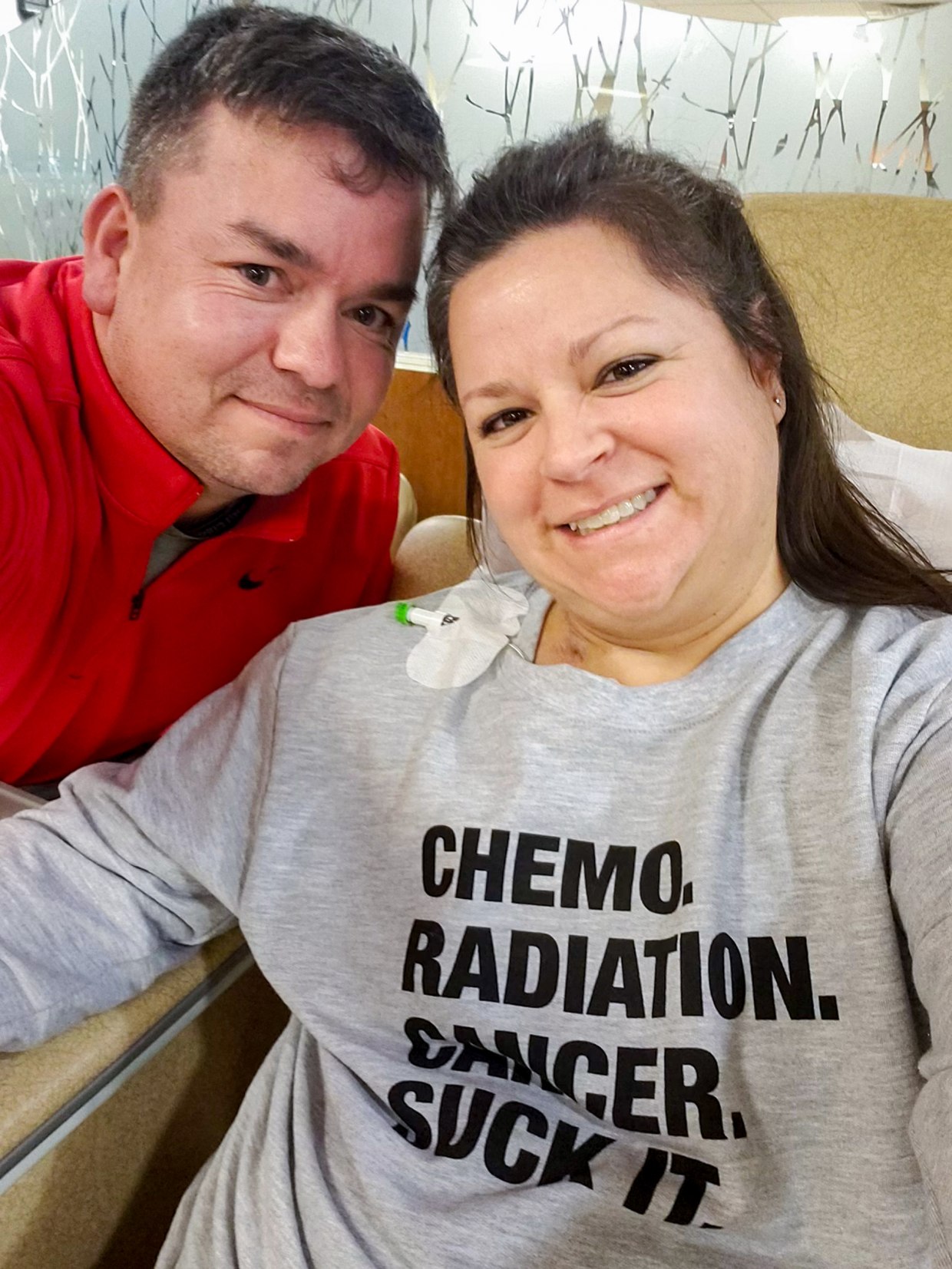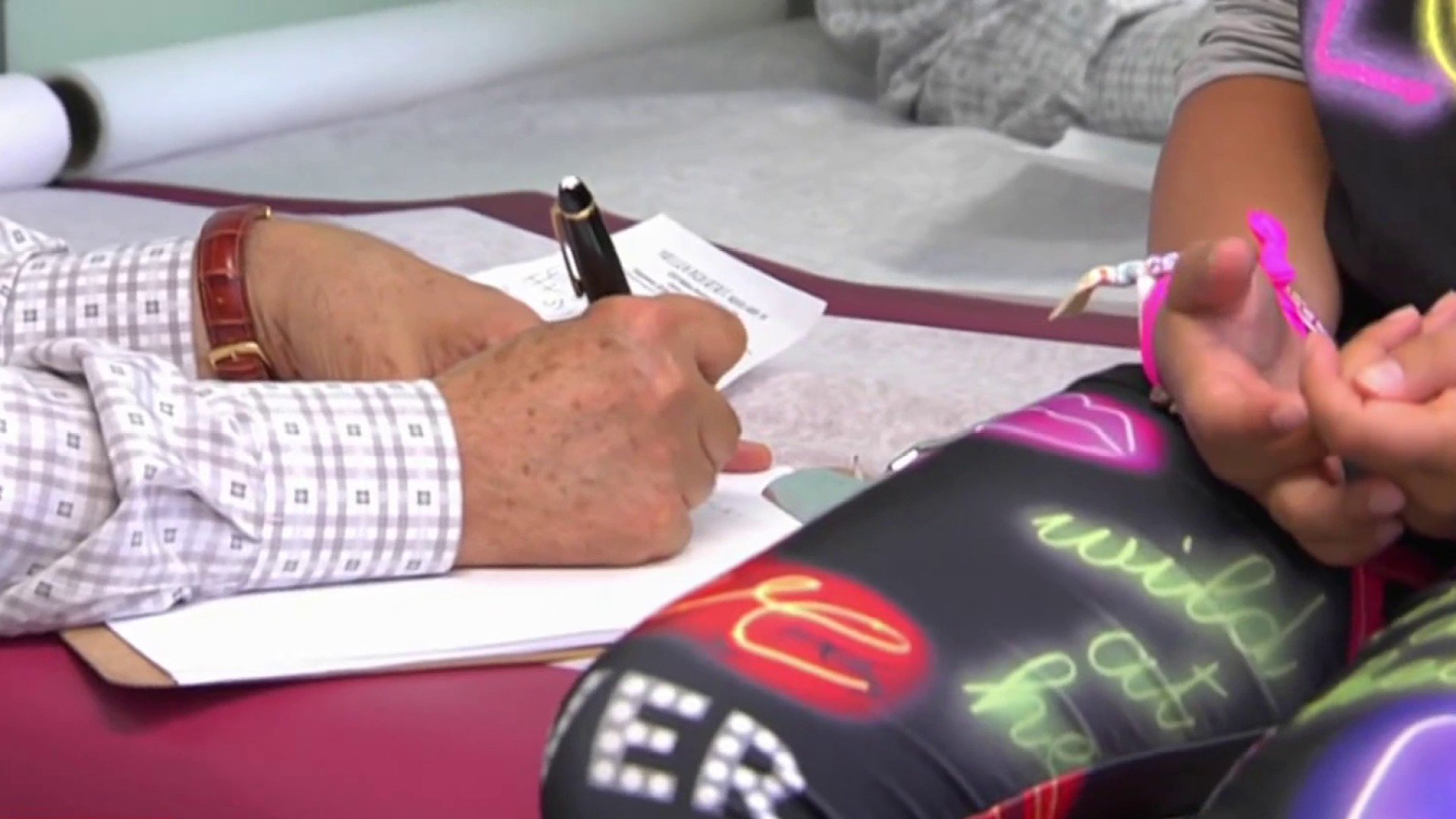
The Food and Drug Administration expanded the approval of Kisqali, a drug for metastatic breast cancer, to also treat patients with earlier stages of the disease, drugmaker Novartis said Tuesday.
The approval means that tens of thousands of women diagnosed with early-stage breast cancer will have access to a medication that can help prevent their cancer from coming back.
“Depending on your risks and everything, up to 30% of breast cancers can come back,” said Dr. Eleonora Teplinsky, head of breast and gynecologic medical oncology at Valley Health System in New Jersey. “If it comes back as stage four, then while we have treatment, it’s not curable. People die from that cancer.”
In a phase 3 clinical trial from the drugmaker Novartis, Kisqali reduced the risk of a patient’s breast cancer coming back by 25% after three years when given in addition to standard treatments, which can include chemotherapy, surgery and radiation followed by hormone therapy.
We've got the news you need to know to start your day. Sign up for the First & 4Most morning newsletter — delivered to your inbox daily. Sign up here.
After four years, Kisqali reduced the risk by 28.5%, according to an updated analysis presented Monday at the European Society for Medical Oncology conference in Barcelona.
“We want to do everything that we can to incrementally decrease the chances of this cancer coming back,” said Dr. Vandana Abramson who is the co-leader of the Breast Cancer Research Program at the Vanderbilt-Ingram Cancer Center in Nashville, Tennessee. “So if a patient was already at a potentially 10% risk of the cancer coming back, this would decrease it further, down to 7%.”
Until now, only Verzenio, another drug in the same class, was approved to reduce the risk of a patient’s early breast cancer returning, but it was only for people with a very high risk of recurrence. Kisqali, on the other hand, will be available to a much broader group of patients, whose disease may not be as aggressive at the time of diagnosis.
Health
It may also cause fewer side effects, Teplinksy said.
The expanded approval is for patients with HR-positive, HER2-negative breast cancer, the most common form of the disease. It's for stage two and three diagnoses, meaning the cancer hasn’t spread beyond the breast or nearby lymph nodes.
It comes as rates of breast cancer are increasing in younger women: From 2000 to 2019, rates of breast cancer in women ages 20 to 49 increased by 15.6% according to a study published earlier this year in JAMA Network Open.
Nikki Odum, 42, was diagnosed with breast cancer when she was 36 years old.
“The first thing that I thought of was, ‘I’m not ready to die, so what do I gotta do?’” said Odum, of Smyrna, Tennessee.

After she had a double mastectomy, chemotherapy and radiation, her doctor, Denise Yardley, asked if she wanted to join the clinical trial for Kisqali. “It was a no-brainer for me. I was like, ‘Game on, let’s do it,’” Odum said.
Yardley, the associate director of breast cancer research at the Sarah Cannon Research Institute in Nashville, was one of the clinical trial investigators. Patients in the trial either took the standard hormone therapy or took Kisqali plus hormone therapy for three years after they completed their main treatment regimen.
Throughout the trial, patients were monitored for side effects such as low white blood cell count and elevated liver enzymes, Yardley said.
If someone experienced a side effect, “typically we would hold a drug, take care of the symptom and re-initiate. If it recurs, then we would do a dose reduction,” she said. About 20% of participants who got Kisqali dropped out of the trial for those reasons.
Odum was part of the group that took Kisqali plus hormone therapy. At one point, she developed a rash over her body and had to pause treatment.
Even so, she said “for me, Kisqali was something that was a bonus. It’s something that I know in my heart helped me.”
The drug’s effects were studied for three years in the trial, however breast cancer can recur decades after diagnosis.
“It would be nice to still see additional longer follow-up data to see if we are impacting just rates of early recurrences, or will we also have an impact on late recurrences?” said Dr. Komal Jhaveri, a breast medical oncologist at Memorial Sloan Kettering Cancer Center in New York.
Abramson, of the Vanderbilt-Ingram Cancer Center, noted that the drug is not cheap.
“The cost, out-of-pocket, if you’re taking it for the entire three years, would be close to $300,000-400,000,” she said.
With the expanded approval, it’s more likely that insurance plans will offer coverage for the treatment, so patients would not have to pay the out-of-pocket cost, but that can impose costs on the health care system as a whole.
“Some of the criticisms of the study have been: well, it was only a 3% benefit,” Teplinsky said. “Three percent more patients benefit. What does that mean? But I think that’s then up to the patient to decide what they want to do. It’s important for them to have the option.”
For Odum, the peace of mind that the medication granted her was worth it.
“You’re always going to be faced with the fact every single day that you have had breast cancer,” she said. “I know that I’m doing everything I can to continue to live.”
This story first appeared on NBCNews.com. More from NBC News:



